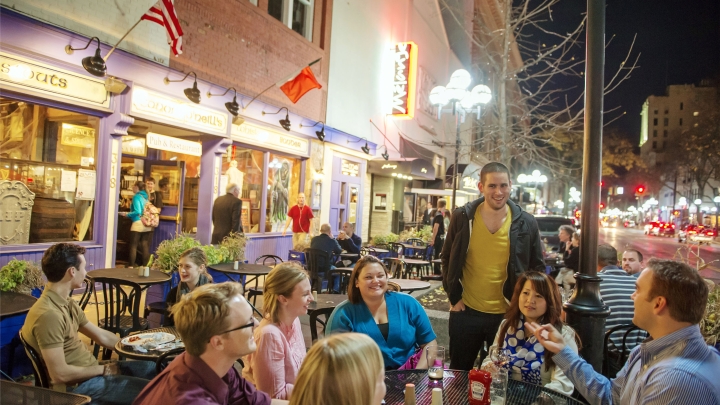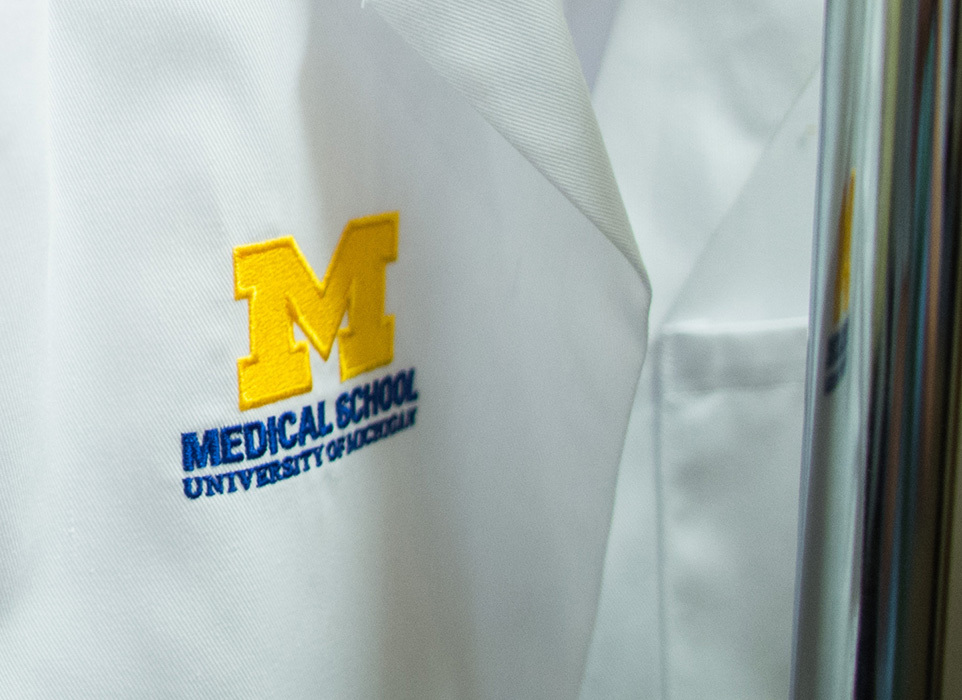-
Medical Student Programs -
Residency -
Fellowships -
Simulation Education -
Student Registered Nurse Anesthetist -
Other Learners -
MOCA -
Facilities & Spaces
The U-M Medical School Department of Anesthesiology offers a one-year, non-ACGME-accredited liver transplant and vascular anesthesia fellowship training program for up to two fellows per year. Broadly, the goal of the fellowship is to provide advanced training in the perioperative care of adult patients presenting for abdominal transplants, major abdominal vascular, and major surgical oncology (caval thrombectomy, etc.) performed at the University Hospital and Frankel Cardiovascular Center.
Training is accomplished primarily through participation in patient care. Fellows serve as faculty two days per week in general adult OR assignments. They serve as supervised fellows during liver transplants and the other high risk cases described above. Clinical training is supplemented by related curriculum and scholarly projects as described below.
The Liver Transplant, Vascular and High Risk Adult Anesthesia Fellowship at the U-M Medical School is intended to extend clinical training following successful completion of a residency program. The following criteria is used for selection of candidates to receive interviews for the position:
- Satisfactory or anticipated completion of an ACGME anesthesiology residency program in the U.S.
- Certification or anticipation of eligibility for the American Board of Anesthesiology Exam
We are committed to a policy of nondiscrimination and equal opportunity for all persons.
- Progression of clinical competence in transplant anesthesia: starting with the development of fellow autonomy in first six months of the year, and subsequent development of teaching skills relevant to training residents and directing care in high risk procedures in the last six months
- Competence in management of massive resuscitation using goal directed viscoelastic testing
- Competence in assessment and perioperative management of patients with end stage liver disease and related comorbidities (cirrhotic cardiomyopathy, hepatopulmonary syndrome, portopulmonary hypertension, hepatorenal syndrome, acute fulminant hepatic failure, etc)
- Certification in basic transesophageal echocardiography (TEE)
- Completion of a research or education project related to transplantation, transfusion medicine, viscoelastic testing or other related topic
- Attendance at the ILTS or SATA meeting is encouraged and is usually supported by educational funding.
- Preparation for certification in basic TEE through case reviews from a repository of high-yield cases and organized curriculum related to TEE for liver transplantation and noncardiac surgery
- Out of OR clinical experiences including blood bank, transplant clinic, listing meetings, and multidisciplinary case review meetings with transplant surgery
- Away rotation to observe care at other transplant centers may be available
The Liver Transplant, Vascular and High Risk Adult Anesthesia Fellowship can be offered as part of a combined two-year training program with the ACGME certified Anesthesia Critical Care Fellowship. The focus of training for the first year of the combined fellowship is spent completing ACGME requirements for surgical critical care. The second year focuses on transplant anesthesia in the ORs. The combination of the two fellowships allows certain benefits to each respective training program including the following: earlier development of basic TEE training in the first year, flexible timing of elective rotations from the critical care fellowship in the second year, and greater opportunity to complete research or other scholarly projects beyond the scope of a one-year training program.
Interested candidates should first apply to the Anesthesia Critical Care Fellowship via SFMatch and then contact the program director if they are interested in the combined program because it is eligible for an exemption from the match.

We seek to be the pre-eminent academic anesthesiology department in the world by making major advances in the field and developing the next generation of outstanding researchers.

We find a new reason to love Ann Arbor nearly every day — year-round outdoor activities, cultural experiences, a growing food scene, and a welcoming, family-friendly atmosphere are just a few that come to mind. Explore all that Ann Arbor and our surrounding communities have to offer.

Program Assistant, Anesthesiology